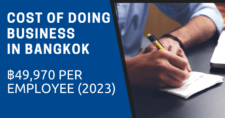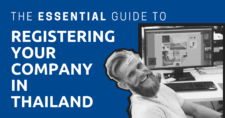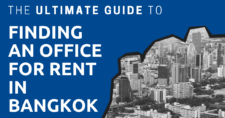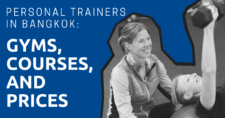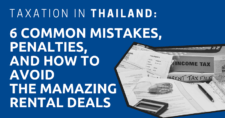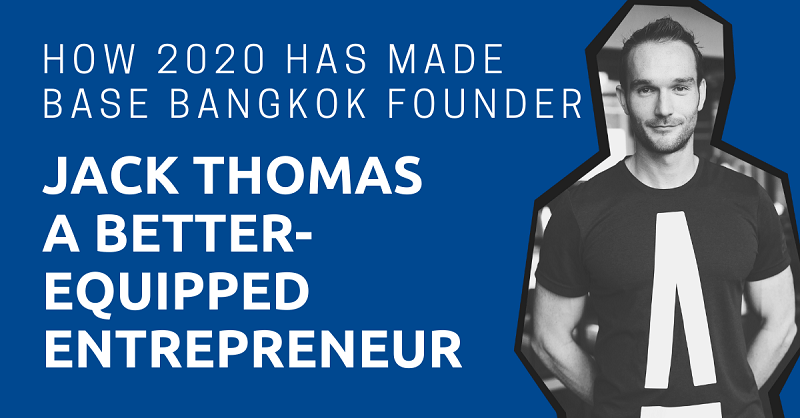
When Jack Thomas launched BASE Bangkok Gym just a few years ago, he never imagined his crisis management skills would be tested like there were in 2020.
After COVID-19 drove much of Thailand into lockdown and subsequently lighter restrictions, Thomas was forced to reevaluate not only his business model and plan, but his life as an entrepreneur in Bangkok.
We recently interviewed Thomas to find out why he chose Thailand to start a health and fitness business in, what the process was and has been like, and what his strategies are moving forward.
Contents
- Out of all the countries in the world to start BASE, why Thailand?
- What was it that you saw could be improved about the fitness industry in Bangkok?
- How has the quality of personal trainers in Bangkok changed over the years?
- What does the future of the fitness industry in Bangkok look like?
- How has the perspective of fitness changed over the years in Bangkok?
- What Void Did BASE Fill in the health and fitness industry in Bangkok?
- How did you set up your business in Thailand?
- What questions should someone looking to open up a business in Bangkok ask potential Thai partners?
- How do you handle the language differences in your classes at BASE?
- How do membership tiers at BASE work compared to other gyms in Bangkok?
- How has BASE dealt with the ongoing issue of PM2.5 and poor air quality in Bangkok?
- How has COVID-19 affected BASE?
- In what ways have you prepared for a second wave of COVID-19 in Bangkok?
- Are you worried that a second wave of COVID-19 will hurt the health and fitness industry in Bangkok?
- Do you have plans on expanding BASE?
- What was it like winning Asia's Gym of the Year Award?
- Do you have any last words about the health and fitness industry for ExpatDen readers?
Out of all the countries in the world to start BASE, why Thailand?
I was training at one of the chain gyms when I first came to Thailand. And it was just clear, the quality wasn’t quite there. And I bumped into a few guys from the US that were working in Thailand and doing well, and just saw an opportunity to do something that I would enjoy and that paid quite well.
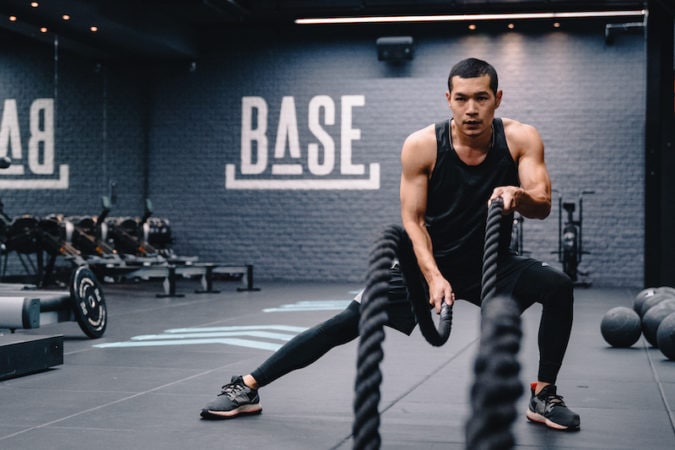
So I went back to the UK, did my certifications, came back here to Thailand, really excited to be getting into a brand new industry, but not really seeing the scale of the opportunity long-term. The industry was very young, it was very immature. At the time, there was only a few chain gyms and hotel gyms.
I started working for a small studio. And then after a year, we opened up another studio called The Lab. That was the first boutique premium high-end fitness training studio way ahead of the curve. Even for London or New York, it would have been ahead of the curve. And it really exploded pretty much overnight.
So that was the start of the premium boutique fitness industry in Bangkok. Since then it’s just grown exponentially. There’s so many studios around Bangkok, many different types of exercise. We’ve got rhythm cycling spin studios, we’ve got boxing studios, hip strength studios.
It’s really been an exciting 10 years I’ve had in the industry. Through my time at The Lab, I went from coach to manager to managing director, so I had a big role in running that company for about two years before I decided I was ready to set up my own gig.
So I left in 2016, we opened our first BASE location in August of that year. The second location came about a year later. The third location came a year after that. We do have plans to expand. Of course, it has been a difficult year in 2020. But we are looking at other markets around Asia, or possibly domestic expansion as well.
What was it that you saw could be improved about the fitness industry in Bangkok?
In a very immature market, it’s often the case that the quality won’t quite be there at the beginning. What you had is companies that came into Thailand and opened gyms was the sole purpose of making money. You could really see all that in terms of sales practices, where their focus was – once you bought your membership, they didn’t really care too much about you, about the trainers. It was all about selling as big as packages as they possibly could, getting as much money from you as possible. Once they got your money, they weren’t really focused on the training.
That left a big gap in the market for someone to come in who actually cared about getting clients results, getting their members results. That’s where you started to see a shift over time. And then as better players came in, who cared more about their members, that was really the focus and really what drove them and their mission – it exposed some of those poor-quality operations.
How has the quality of personal trainers in Bangkok changed over the years?
When I first came here 17 years ago, there were just hotel gyms. And then you had some chain gyms come in and through that they started employing local Thai trainers, but there was no certification. All of the training was done internally.
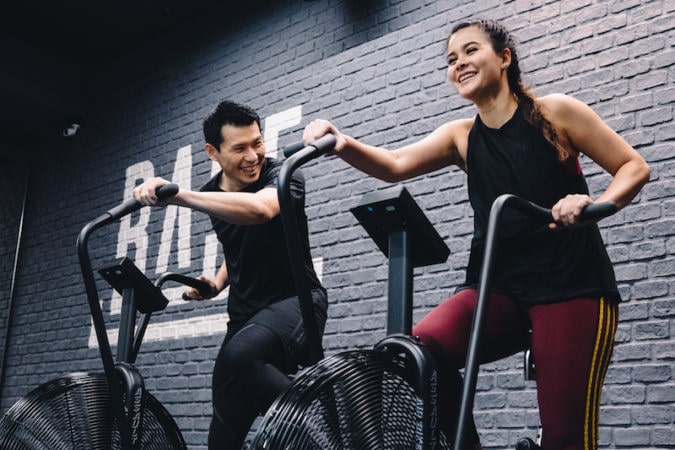
Then about 12 or 13 years ago, a friend of mine here in Thailand, Suzanne Hosley, started FITS (Fitness Innovation Thailand), which did an American Council of Exercise Certified Personal Training Qualification.
That really started to change the industry because you suddenly had a level of trust that people had this American certified trainer, and so some of the gyms had started investing into that scene, then some people started doing the certification and then just started going freelance. The industry shifted and changed towards being more professional and to be more respected.
Then later down the line, there was also the NSM (National Academy of Sports Medicine), which is another American certified qualification. So then you had a bit of competition with different schools offering Western quality qualifications, which was definitely a big step.
When I came into the industry 10 years ago, the way that Thais viewed the fitness industry was kind of just like any other service job. I think it was kind of seen quite low down in the job hierarchy. So if a young Thai wanted to become a trainer, maybe the parents wouldn’t support or accept that move. Over the last 10 years since I’ve been in the fitness industry, we’ve definitely seen that shift.
Many Thais are coming into the fitness industry, they’re seeing it as a more desirable job. They’re seeing the earning potential is high.
What does the future of the fitness industry in Bangkok look like?
I’m very positive about the future of the fitness industry, not just here in Thailand, but really everywhere. But I think here in Thailand, you just seen such a dramatic revolution. Fifteen years ago, there was nothing. Now it’s actually a lot better than my hometown in Bristol. And Thailand is certainly one of Asia’s leading fitness markets.
How has the perspective of fitness changed over the years in Bangkok?
Some of the more traditional parents still don’t socially support their children coming into the fitness industry, but it’s starting to shift, it’s starting to change as the industry becomes more professional, and as more professional players come into the industry.
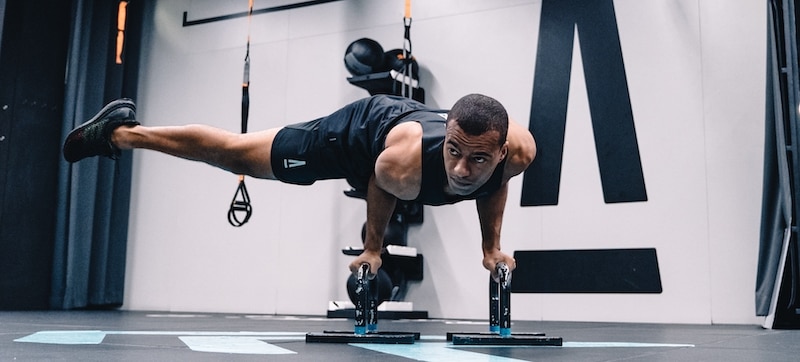
You really notice it walking down the street, Lululemon pants, and all that athleisure gear – you just didn’t see that 10 years ago. Now it’s becoming more like a lifestyle that people really get into. They wear it like a badge of honor. They tell their friends they train at a certain place, they spend more on the clothing that comes with it. They’re posting photos on Instagram.
We have a lot of Thai females that do heavy strength training. Some of them competed in powerlifting competitions. Actually, we are predominantly female as a gym and our strength classes are really no different 10 years ago, that absolutely would not have been the case.
We’ve definitely seen a shift towards women wanting to be healthy, wanting to be fit. We’re seeing this shift suddenly towards people wanting to be stronger and actually like building muscle. And that’s been really cool to see and really exciting.
What Void Did BASE Fill in the health and fitness industry in Bangkok?
When I opened BASE, the industry was very busy, it was very developed. So we needed that thing that helped us stand out. And this was something I wasn’t really sure about. At first, I remember speaking to my business partner about it, and if we were going to be the best studio in Bangkok, we were going to have the best coaches and the best service. Then you realize that’s what everyone says.
That had me thinking conceptually, what could we add? No one at the time was using cardio machines within their group class training. It was something that I’d seen in New York, and I was starting to see it in London a little bit. And I personally really liked it. So we decided to be the first studio to bring in cardio machines within a group class context in Bangkok. We added in treadmills, row machines, and bikes. That was one differentiator that really helped us to stand out.
The second thing was that I really wanted to add in this element of tracking and recording as you went through a group class. Most group classes, you go in, you run hard, you sweat a lot, you burn a lot of calories, you do some kind of strength work, maybe you have an Apple Watch, it tells you your heart rate was this level, or you burned this many calories. But it doesn’t tell you if you’re getting fitter, if you’re getting faster, if you’re getting stronger. That was something that we really wanted to build into the group class format. So we decided to develop a system which we called Baseline, and it went through many different stages to get to where it’s at today.
We made a decision about two years ago to build our own technology that would be incorporated into every group class that you came to. So after you finished a treadmill set, you would hit in the distance that you ran. At the end of a dumbbell bench press set within a group class, you were tapping the weights that you lifted. And it was all linked into our booking software. So it was all a very seamless, smooth experience. We certainly invested a lot to make it as smooth as possible.
That started two years ago, it was about a year ago when we fully introduced that into our group classes, which took about a year to get to that stage. And since then, we’ve just added in many, many new features. We have an app coming in January. It’s a web based app. So you need to go in through a browser, but we’ll have a full app coming.
We’ve got leaderboards to view the competitive side – you can opt in or opt out. But if you have a competitive side, you can opt in and see how you compare with other people. When you log into the app, it tells you what sets are coming up for that day. The coach has access to this information as well. So it gives the coaches this level of information and data which hasn’t really been available in group class training before.
We put a lot into our trainers as well. We give them an education budget each year. We have 30 coaches within BASE to help to build up the new coaches. We want to have a gym that is Western standard. If you put it in London, if you put it in Sydney, it would still be leading the way.
How did you set up your business in Thailand?
I got four business partners. So I have about half of the company. One of them already had a company in Thailand, it was a retail chain – football stores and running stores. He’s actually a foreigner here in Thailand as well, but he’s now a Thai citizen. He helped us set up the company and gave us a push along the way in terms of the shareholders agreement. He had more experience in that area, and that was something that I didn’t have experience with. So having his experience was definitely very valuable.
And that’s something I actually feel quite passionate about, doing all of these things in the right way, having the right conversations with your business partners, getting everything written down in a formal legal agreement. And then also in terms of a less formal agreement, roles and responsibilities, what’s everyone going to do within the business? What’s their commitment going to be?
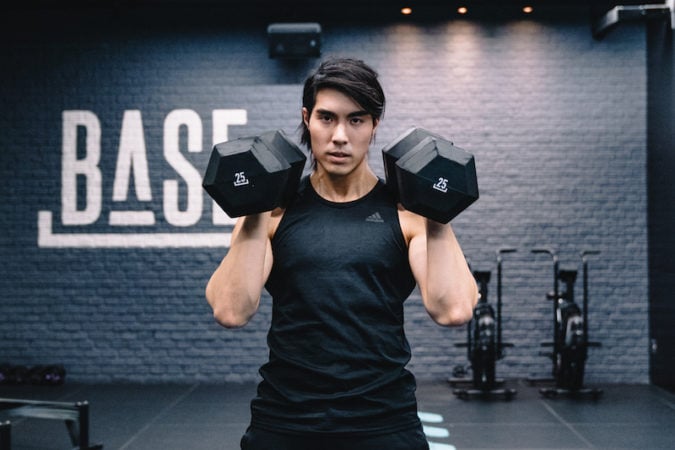
All of the other partners are Thai. So again, the shareholders agreement helps with that. And I think there was a level of trust in that I knew and trusted my main business partner. So we had the the majority share of the company, the other shareholders was smaller. But they come from very good backgrounds. Their families are very well known and respected in the business community, they have a lot of business interests throughout Thailand. That doesn’t mean that precautions shouldn’t be taken. It doesn’t mean that things can’t go wrong.
You have to do a bit of due diligence, ask around and try and get as much information as you can about anyone that you bring on to the business. If I’m absolutely honest, I think I got lucky. My business partner is a friend of mine. And as it turned out, the Thais were great. They weren’t getting involved too much in the business, just helped get together every now and again, offered some advice, but largely let me do the day to day running of the business.
Anyone who’s starting a business here in Thailand definitely needs to vet any potential business partners. Make sure you have all of the difficult conversations at the very beginning. Make sure you can do your due diligence as much as you can. Check out their backgrounds and make sure that they don’t have any skeletons in their closet. Get references if you can if you don’t know them very well.
Even though things worked out great, and I’m very, very happy, if I was to do it all again, I would actually approach it quite differently.
What questions should someone looking to open up a business in Bangkok ask potential Thai partners?
I think the biggest one to ask is, “Why do they want to get involved in the business?” The answer really needs to align with what you want from that partner. So if you just want money, and that’s going to help you get your business started, you need to make sure they’re not going to be very involved in the business day-to-day, they’re not going to be demanding a seat at the table, they’re not going to be physically there in your gym, or your business, or whatever it might be.
I would say before you even tell them what you’re looking for, ask them what they’re looking for, and then just see if their needs align with your needs. For many people, it’s the opposite. You might have enough money, but you need contacts, connections. You might need business expertise, you might be getting into an industry that you don’t understand in Thailand, or have any connections or contacts with. In which case, you might be looking for the opposite. You’re not too bothered about money, but you want them to be more involved in the business.
So again, what you don’t want is to go into a business partnership, and then suddenly, they just disappear off the face of the earth and you can’t get hold of them, and they’re not doing the things that they promise.
What’s quite common here is to get some sort of celebrity or an influencer as part of your shareholder mix. You need to make sure if you do that, that they do what they say they’re going to do, they got to come into your business, they’ve got to bring celebrity friends, they’ve got to post on Instagram, they’ve got to do all of that stuff.
So the main thing really is just to make sure those things are aligned. If they want money, if they want a return on their money quickly, that might be fine. But that’s something that you really need to bear in mind as well. If they see it as a portfolio project, they see the bigger vision and they want to scale and expand, and they don’t need dividends every year, then that’s a useful thing to know at the beginning as well. Because if you don’t get that right it could really cause the whole thing to crash and crumble very quickly.
Once you’ve had all of these conversations, get it written down, get it recorded, get it legally binding within a shareholders agreement.
How do you handle the language differences in your classes at BASE?
We do have many expats. We’re about 30% to 35% foreign clients. So it’s important that our staff do speak English – that’s a requirement. BASE is very international. All of our classes are done in English. So even our Thai coaches will conduct their classes in English. And that’s become part of our brands, like a part of the feel of BASE.
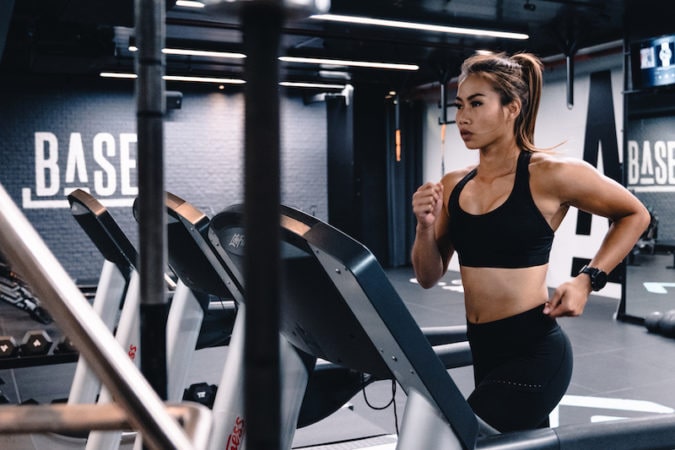
Many of our staff, they might be half Thai, half American, some of them are half Thai, half European, or some of them lived abroad, studied abroad. So it’s made it very international. I think that it can be an advantage and a disadvantage. Some sides definitely feel quite intimidated by that fact. So they won’t come in as much. So then what we’ve done to kind of counteract that is we’ve got a few Thai coaches who are a bit more Thai. They still speak English, but they can connect a little bit more with the Thai clients.
The day to day, it’s English focused. I think even though we’re 70% to 75%, a big portion of those do speak English as either a first or strong second language.
How do membership tiers at BASE work compared to other gyms in Bangkok?
We have a hybrid of two memberships depending on how regularly you come. If you come once or twice per week, you’re better off buying 10 sessions, 25 sessions, and we’ve got 50 or 100.
Or we have monthly packages. You can buy three, six, or 12 months upfront, so a one-off payment, and then you get a better rate if you commit to a bigger package.
So depending on whether you come three or four times a week, five times a week, or more than that, we have different packages for members. And you can even pay for a monthly subscription. But interestingly, that’s not that popular amongst our members. It’s something that we think we’re gonna push a little bit more next year, with the economy slowing down.
We found that’s been an important shift for us from a business perspective. It’s allowed our clients to plan their training a little bit more and ultimately get better rates for committing more and training more regularly, which we think is a better system and a better way of doing it.
How has BASE dealt with the ongoing issue of PM2.5 and poor air quality in Bangkok?
It was three or four years ago, I remember when we started BASE the first year that it was really bad here. I remember the first year we had one American coach, she was part of the coaching team when we kicked off the gym, and she was particularly concerned about air pollution in Bangkok. And I wasn’t really that worried and didn’t think about it too much.
I was more concerned about her being concerned and wanting to get back to the US. I realized that no one seemed to be talking about it. No one seemed to care.
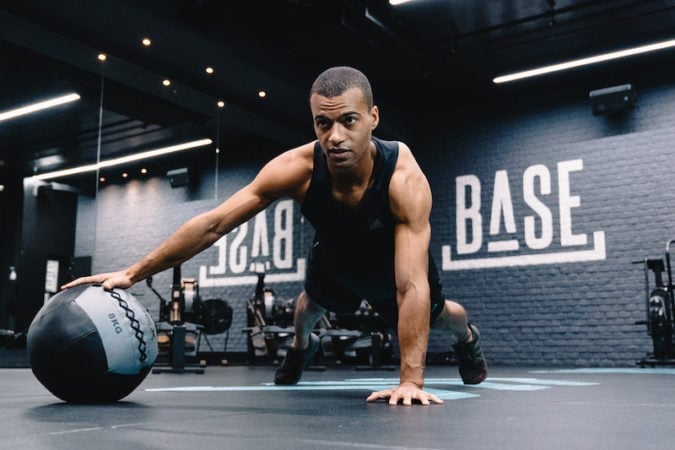
Then the next year when it came around, it was suddenly really big news. It was in the Thai news a lot. Schools, companies started to take notice and add in regulations when kids couldn’t be outside and doing exercise and stuff like that.
The year after that, when it came back again, we decided to invest in making all of our gyms healthier with clean air. So we got air purifiers throughout each gym. We put quite a lot of cash into it and to make not only the gyms safe and clean, but also the staff rooms and the bathrooms we got air purifiers for there as well.
We put a PM2.5 monitor on the front desk to be as transparent as possible. And that had a massive positive effects. People really liked seeing that. It showed our members that we care about them, and we want them to be able to train in a safe and clean environment.
How has COVID-19 affected BASE?
You have to feel blessed every day, really. The two and a half months we were closed was very, very difficult – very uncertain. Obviously, we didn’t know which direction it could go in. We could have been like a Philippines or an Indonesia, which in the Philippines, boutique gyms are not open yet.
So many businesses are closing, some landlords are being kind, some aren’t being kind. I really have to remember just how lucky we are. We were fortunate and that our landlords are very good to us, they had really good positive conversations from day one, and really wanted us to get through it. Especially the two of our locations, we are important tenants. They wanted us to come into their developments. They were very willing to sit down at the table and work something out to help us get through COVID. So I feel very indebted to them moving forward.
But once we opened up, people were really keen to get back quickly. And they just couldn’t wait to come back to BASE and start to get their life back. And some people were concerned, of course, about the virus and maybe some lost their jobs as well. So it’s been a rebuilding process.
Since reopening, we are currently sitting around 80% of what we were doing last year for personal training, which is interesting. I think part of the reason of that is it’s perceived as being a bit more safe, you have a bit more space. And the environment is more controlled.
Group classes are sitting around 75% to 80% of what we were doing last year. And so overall, the business is about 80%. So we really, really can’t complain. I feel very fortunate that we’re not losing money. Our goal when we reopened was just to not lose any money until the end of the year, we could just tread water. And we’d be quite happy with that. And we’re doing that.
Hopefully, we can maybe even be profitable this year, which would be good, which will be fantastic. And then next year build on that and keep our fingers crossed that there will be no lockdown or second wave.
In what ways have you prepared for a second wave of COVID-19 in Bangkok?
You have two ways to look at it from a business based perspective. One is just the health and fitness angle. So I think people do have a renewed interest in health and fitness. I don’t think we’ve seen a huge amount of people that have come in scared of being more vulnerable to COVID. I think it is brought the focus on like, I need to be fit, I need to be healthy, I need to be strong. And there’s certainly a lot of interest in Asia, in this sector. In wellness moving forward, there’s a lot of talk of investment. And I think it’s actually quite an exciting industry to be in for what’s happened this year.
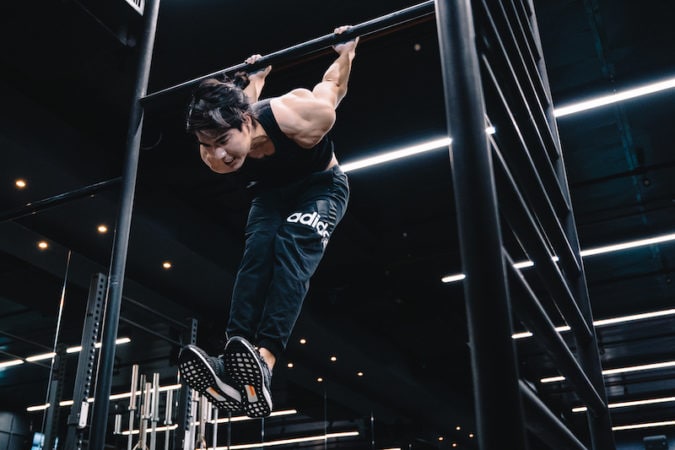
The second one is from the business perspective. We now know the government can just close our business. And that’s something that just didn’t really seem like a thing before. If someone said that a year ago that it was going to happen, you wouldn’t really believe them. So we’ve tried to set the business up in a way that we can survive any future pandemics.
We made sure that our staff were okay during that time. We paid as much as we could to keep them going. We offered loans to the team as well. And so that meant that we get to retain our team, which was hugely important.
Now, setting things up for potentially another lockdown, we’re really encouraging our team to save as much as they can. We are making sure that we have enough cash in the bank so that if the worst does happen, we can get through it. We know now that our landlords will work with us if the worst happens. So that gives us an added layer of security, which not everybody has.
And then during COVID, we did switch to virtual online training. So we worked really, really hard in the first few weeks, especially to get that up as quickly as possible. And that was important for a few reasons. One was to bring in money during that time. And then also just to keep our brand relevant, just to help people get through the time. And we did a mix of free workouts online, which was great marketing, really popular, definitely helped us hit a wide audience. And then we had a paid online service as well, which brought in some cash that really helped us at that time.
I think 2020 has been incredibly hard. But I feel like in terms of personal and professional development, it’s probably been as good or better than any other year. I really feel like I’ve learned a lot in terms of crisis management. I feel more equipped now to deal with future crises, for sure.
Are you worried that a second wave of COVID-19 will hurt the health and fitness industry in Bangkok?
In terms of local gyms, I think people would typically stick to the gym that they know, because honestly, everyone’s doing the same stuff to be honest with you. They’re doing squats in front of the TV, burpees, and mountain climbers. No one is doing anything crazy or anything innovative. So from a local perspective, I would feel fine. I think our client base would come to us to get help through that time.
In terms of competing with those big players, I think that is hard. And that’s why it becomes more of a long-term thing, online fitness. It’s very difficult to compete with them for sure. But our offline offering is so different than what you can get at home. I think that is what’s brought people back so quickly. And I don’t think every modality has had that.
We do have an eye on the future. Like, “How could we have a Baseline type technology that they could use at home?” Maybe we have a kit that they would buy. So you get a few dumbbells and a few kettlebells and some things that would help them do a home workout. We’re kind of thinking toward the future. But I just don’t really see the market here as being ready for it, assuming that COVID is not here.
Do you have plans on expanding BASE?
We currently have three, and it’s pretty much the three most primary located spots in Bangkok. I think our main focus now is towards international expansion. We got an eye on a few spots around Bangkok. But the reality is, I think outside of those main prime areas, we do look and feel very expensive. So we’re trying to do market research, trying to talk to people in those areas. We’ve visited these spots in these areas to see what the vibe is, and see if BASE could potentially fit there. But I don’t see a massive rollout. We’re not going to be Jetts or Fitness First, where we’ve got them dotted all around the city.
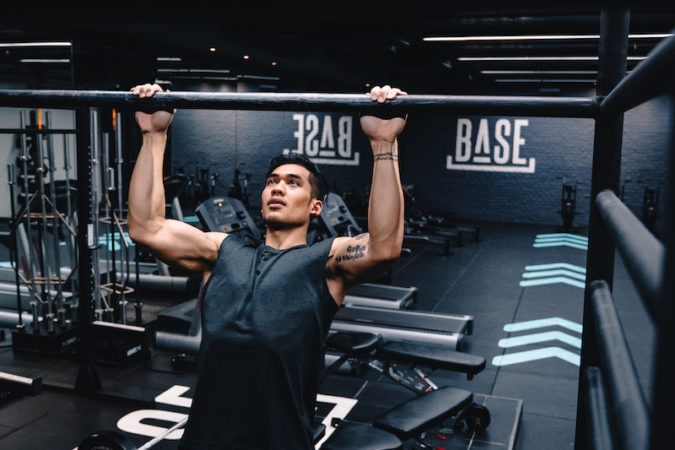
Our focus and investment going toward a primary market such as Singapore would actually be better for us long term. So rather than open three here, if we can open one in Singapore, and make a success of it there, which I have the confidence that we can do, especially with the technology that we bring, then we suddenly start to get noticed a lot more – we could perhaps look at a franchise model, which would allow us to expand quicker and we had a lot of interest over the last few years. If we can show that BASE works in a different market with a lot of competition, I really think that opens way more doors than just opening locations more here in Bangkok out in the suburbs.
What was it like winning Asia’s Gym of the Year Award?
I think it was our approach to marketing and PR. By then we’d really learned a lot on how to push BASE out in the best possible way. We’d had a lot of good coverage from local publications, international publications. We’ve been a Men’s Health UK, for example. So that online presence really helped us push it over the line.
We went to the awards in Jakarta and we didn’t really have any big expectations. But you know, we took it home. It was obviously great for BASE. I think it was great for our marketing team, especially. But for the whole team, it was a strong indication that we were doing the right things, and to get recognized on the international stage was awesome.
With that, we really made a big PR push in Thailand to highlight the fact that Thailand’s fitness industry has been recognized on the international stage. And that’s a victory for everyone here.
Do you have any last words about the health and fitness industry for ExpatDen readers?
I think fitness needs high-quality operators, and we didn’t have that 10 years ago, but we have a lot more of them. My old workplace, The Lab, is certainly one of them. At BASE, we really strive to be that everyday. And we feel a real obligation for every single new person that comes into the gym, every single new coach that starts with us, to show them that the fitness industry is a great place to be, it’s an exciting place to be, it’s a good career choice, and that as as a coach, you can make fantastic money.
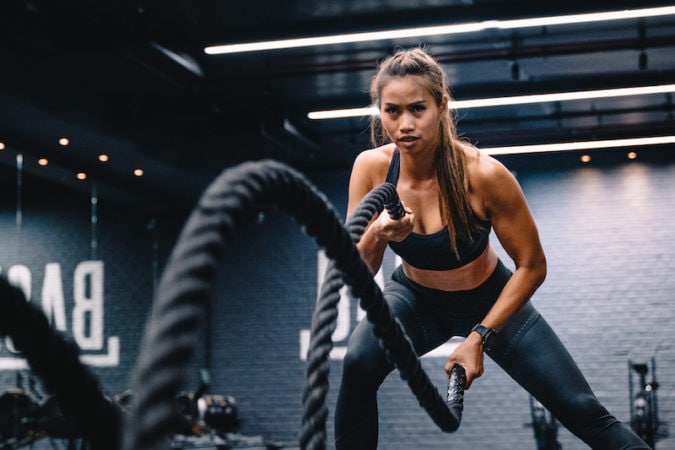
But also as the industry develops, and as BASE develops, there are many opportunities to do other things you want to get into: marketing, management, the expansion that we have planned. And some of the coaches have really embraced that side of things.
Some just really enjoy doing coaching. But I think this industry, because it’s new, because it’s growing, because it doesn’t always have the best reputation – you know, health and fitness, a lot of get-fit quick schemes and stuff like that, really thin models – I think because it doesn’t always have the best reputations, we need quality operators to come in. We need great coaches to come in and really care about their clients.
So we try and inspire that through what we do at BASE. And then through the Fitness Business Asia Podcast that I run. The goal is to really push that message as much as possible, if I can help build the industry up and we can help build the industry up, that’s good for everybody. And obviously it’s good for BASE as well.

